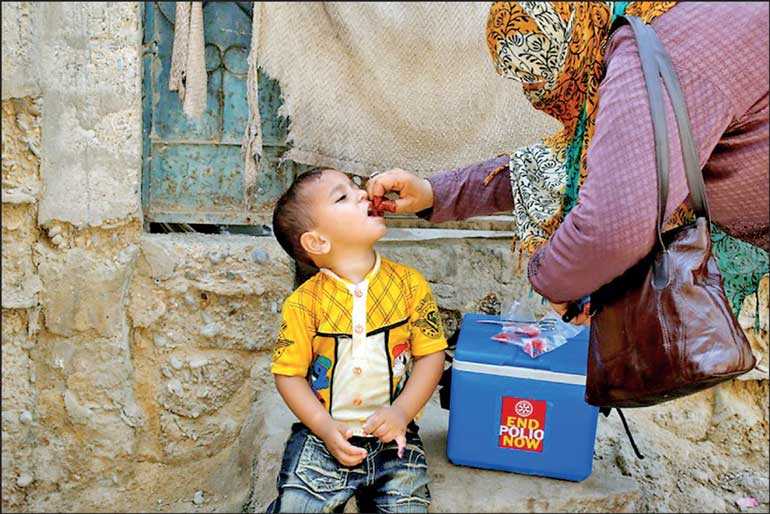Friday Feb 27, 2026
Friday Feb 27, 2026
Monday, 3 December 2018 00:00 - - {{hitsCtrl.values.hits}}

The spread of polio must still be classified as a public health emergency because, while progress has been made towards wiping out the disease, that progress is fragile, the World Health Organization (WHO) said on Friday.
“We are so close to the elimination of polio, but we have to use all of our international tools to achieve this end,” Helen Rees, chair of the WHO’s international emergency committee, told reporters on a telephone briefing.
“The ongoing situation continues to require that a public health emergency of international concern should be applied.”
Latest WHO figures show there have been 27 cases of wild polio so far in 2018 – all of them in Pakistan and Afghanistan where the contagious viral disease is endemic.
Rees said the WHO was “very concerned” that this number was higher than last year, and urged governments against complacency in the battle to eradicate the paralysing disease.
“Finishing this job remains an absolute emergency,” she said.
The polio virus, which invades the nervous system and can cause irreversible paralysis within hours, spreads rapidly among children, especially in unsanitary conditions in war-torn regions, refugee camps and areas where healthcare is limited.
The disease can be prevented with vaccination, but immunisation coverage rates need to be very high and any gaps allow the virus to fight back.
The Global Polio Eradication Initiative, launched in 1988, originally aimed to end all transmission of the disease by 2000.
And while there has been a 99 percent reduction in cases worldwide since the GPEI launch, fighting the last 1 percent of polio cases has been far tougher than expected.
Efforts to eradicate the disease in Afghanistan and Pakistan have been undermined by opposition from the Taliban and other Islamist militants, who claim immunisation is a foreign ploy to sterilise Muslim children or a cover for Western spies.
Friday’s statement by WHO polio emergency experts also expressed concern that after a 10-month period of no international spread of wild polio virus between Pakistan and neighbouring Afghanistan, the last three months had seen cross-border spread recur in both directions.
The WHO emergency committee noted, however, that it has been four years since there was any international spread of wild polio outside of these two epidemiologically linked countries.
In Afghanistan, the number of polio cases has almost doubled in 2018, with 19 cases reported so far compared to 10 at the same time last year. The WHO said this was “due to worsened security and greater inaccessibility, and persistent pockets of (vaccine) refusals and missed children.”
In Pakistan, it said, the polio situation has stagnated, with eight cases reported so far this year, the same number as was reported for the whole of 2017.